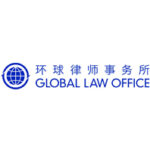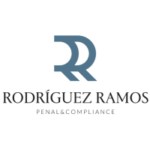-
What is the legal framework (legislation/regulations) governing bribery and corruption in your jurisdiction?
-
Which authorities have jurisdiction to investigate and prosecute bribery and corruption in your jurisdiction?
-
How is ‘bribery’ or ‘corruption’ (or any equivalent) defined?
-
Does the law distinguish between bribery of a public official and bribery of private persons? If so, how is 'public official' defined? Is a distinction made between a public official and a foreign public official? Are there different definitions for bribery of a public official and bribery of a private person?
-
Who may be held liable for bribery? Only individuals, or also corporate entities?
-
What are the civil consequences of bribery and corruption offences in your jurisdiction?
-
What are the criminal consequences of bribery and corruption offences in your jurisdiction?
-
Does the law place any restrictions on hospitality, travel and/or entertainment expenses? Are there specific regulations restricting such expenses for foreign public officials? Are there specific monetary limits for such expenses?
-
Are political contributions regulated? If so, please provide details.
-
Are facilitation payments prohibited or regulated? If not, what is the general approach to such payments?
-
Are there any defences available to the bribery and corruption offences in your jurisdiction?
-
Are compliance programs a mitigating factor to reduce/eliminate liability for bribery and corruption offences in your jurisdiction?
-
Has the government published any guidance advising how to comply with anti-bribery and corruption laws in your jurisdiction?
-
Are mechanisms such as Deferred Prosecution Agreements (DPAs) or Non-Prosecution Agreements (NPAs) available for bribery and corruption offences in your jurisdiction?
-
Does the law in your jurisdiction provide protection to whistle-blowers? Do the authorities in your jurisdiction offer any incentives or rewards to whistle-blowers?
-
Does the law in your jurisdiction enable individual wrongdoers to reach agreement with prosecutors to provide evidence/information to assist an investigation or prosecution, in return for e.g. immunity or a reduced sentence?
-
How common are government authority investigations into allegations of bribery? How effective are they in leading to prosecutions of individuals and corporates?
-
What are the recent and emerging trends in investigations and enforcement in your jurisdiction?
-
Is there a process of judicial review for challenging government authority action and decisions? If so, please describe the key features of this process and remedy.
-
Have there been any significant developments or reforms in this area in your jurisdiction over the past 12 months?
-
Are there any planned or potential developments or reforms of bribery and anti-corruption laws in your jurisdiction?
-
To which international anti-corruption conventions is your country party?
-
Do you have a concept of legal privilege in your jurisdiction which applies to lawyer-led investigations? If so, please provide details on the extent of that protection. Does it cover internal investigations carried out by in-house counsel?
-
How much importance does your government place on tackling bribery and corruption? How do you think your jurisdiction’s approach to anti-bribery and corruption compares on an international scale?
-
Generally, how serious are corporate organisations in your country about preventing bribery and corruption?
-
What are the biggest challenges businesses face when investigating bribery and corruption issues?
-
What are the biggest challenges enforcement agencies/regulators face when investigating and prosecuting cases of bribery and corruption in your jurisdiction? How have they sought to tackle these challenges? What do you consider will be their areas of focus/priority in the next 18 months?
-
How have authorities in your jurisdiction sought to address the challenges presented by the significant increase of electronic data in either investigations or prosecutions into bribery and corruption offences?
-
What do you consider will be the most significant bribery and corruption-related challenges posed to businesses in your jurisdiction over the next 18 months?
-
How would you improve the legal framework and process for preventing, investigating and prosecuting cases of bribery and corruption?
Singapore: Bribery & Corruption
This country-specific Q&A provides an overview of Bribery & Corruption laws and regulations applicable in Singapore.



















